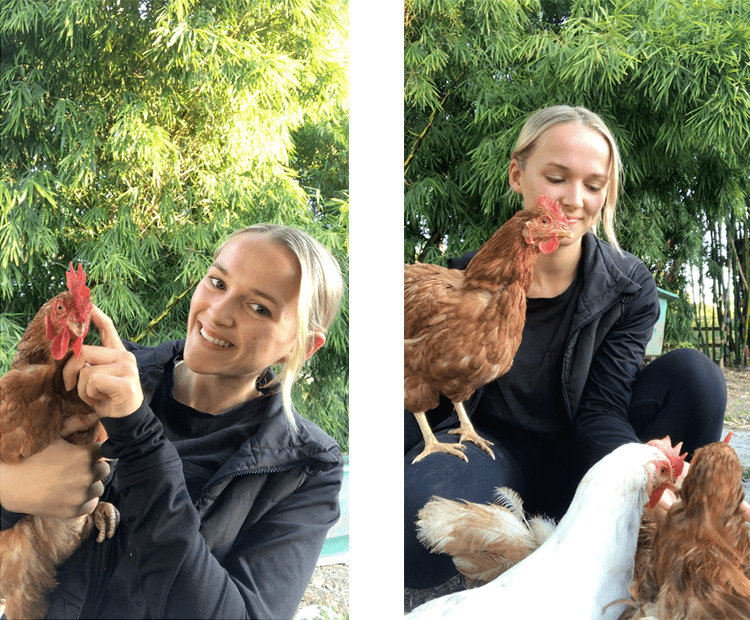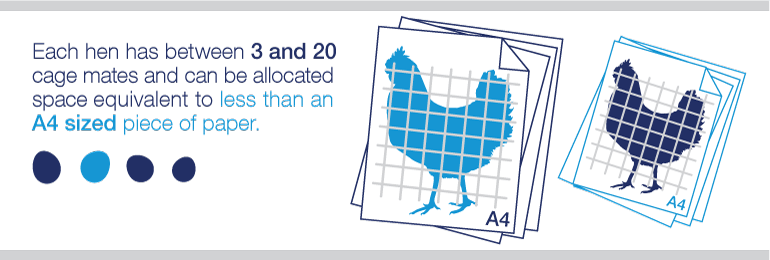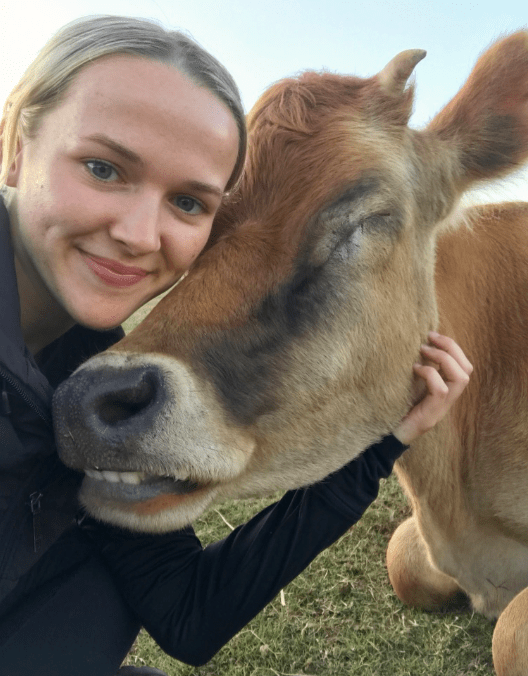Voiceless believes in the power of Animal Law Education (ALE) to educate and inspire the next generation of changemakers to improve legal protections for animals. To support and recognise law students in this field, we sponsor a prize for the Top Performing Student in Animal Law at Griffith Law School. We had a chat to Billie Shone, last year’s recipient, about what inspired her to study animal law and the important lessons she gained from her studies.
BILLIE, WHAT INSPIRED YOU TO STUDY ANIMAL LAW?
I was very conscious of animal welfare from a young age and the more I discovered about the suffering and exploitation that millions of animals endure, my passion to protect the voiceless grew. This passion most certainly arose out of being surrounded by animals as a child. We had 3 kelpies, countless horses, chickens, and even a wild peacock decided to live with us at one stage. My mum was a WIRES carer, so dinner was often interrupted by a koala or a possum rescue. I would always eagerly tag along on these rescue missions and it was so rewarding to see an injured animal given a second chance at life. One of the most memorable rescues was a Tawny Frogmouth that was badly injured by the recent fires. A few weeks after we released him, he landed on my shoulder while we were having dinner and it felt like a little thank you for saving him!
When I left home and moved to the city for university, I really missed these interactions with animals and this led me to volunteer at an animal sanctuary in Brisbane. The resident sanctuary animals are the most beautiful souls, yet they all come from the most horrific past. Many of them are ex-dairy cows who were destined to be killed after their milk supply ran out, or battery hens that couldn’t produce any more eggs. When you spend time with farmed animals you learn that just like any other animal they have the capacity to feel emotions like pain, sorrow, frustration, stress, love, joy and loneliness. The way these animals are needlessly subjected to a life of suffering whether it be for food, clothing, entertainment or research is a great injustice in my eyes and I wanted to study animal law to learn how we can bring about a better world for animals to live in.
Given that the current legal framework essentially institutionalises animal suffering, I had a keen interest in studying animal law to examine how the legal system can be used as a tool to create change.

WHAT WAS THE MOST SURPRISING THING YOU LEARNT?
Through the course, it became evident very quickly that there is a huge disparity between the protection of ‘companion’ animals, as opposed to ‘farmed’ animals. I was very surprised by the lack of legislative protection for farmed animals. Despite farmed animals being the most vulnerable, given that they are treated as commodities, they are for the most part excluded from the ambit of protective legislation.
As I researched this area extensively, I found that the law is structured around protecting the economic interests of the farming industry, rather than the intrinsic moral worth of animals. Despite overwhelming and compelling research showing that animals are emotionally complex and intelligent beings, they are subjected to the atrocities of factory farming because cruel practices are legally entrenched through codes of practice.
My major essay for the course was on farmed animal protection and the ‘Five Freedoms’, being (1) Freedom from hunger and thirst, (2) Freedom from discomfort (3) Freedom from pain, injury and disease (4) Freedom to express normal behaviour, and (5) Freedom from fear and distress.
Despite these Freedoms representing the most basic needs of animals, many of the current laws and policies allow practices that directly infringe the Five Freedoms. Permanent confinement of battery hens to cages not much bigger than an A4 sheet of paper means hens are unable to perform even their most natural behaviours. This can cause them to become frustrated, fearful and aggressive.
Read more about hen welfare issues in the Australian egg industry here.

Instead of providing more space, factory farmers routinely beak trim baby chickens to prevent bullying behaviour. Other standard practices that infringe upon the Five Freedoms include routine mutilations without pain relief such as the disbudding of calves, tail docking and teeth clipping of piglets, mulesing of young sheep and the premature separation of young from their mothers.
Read more about the welfare issues in the dairy industry here.
The law is essentially inviting the conclusion that standard animal husbandry practices, although capable of causing great suffering, are legally permissible because they relate to the production of food. Given that societal standards are an incredibly strong force to shape and transform laws, I believe that the more transparent these ostensibly cruel practices become, the greater chance of reform for the legal protection of animals.

WOULD YOU RECOMMEND OTHER STUDENTS STUDY ANIMAL LAW?
Absolutely, I really do think that societal expectations regarding animal welfare are becoming a prominent and evolving social justice concern. It will be influential for the next generation of lawyers to be informed about the lack of legal protection for animals, so they can help to reform these inadequate laws. Given that these issues generate considerable public interest, I believe there is very much the possibility to bring about real and lasting change for animals through the law.
Interested in studying animal law?
Billie intends to use her law degree to make a difference in the lives of both people and animals. If like Billie, you are interested in studying animal law in Australia, we have just updated our list of available animal law electives offered across the country. Find it here.
Some animal law organisations and law firms offer law students and Practical Legal Training students the opportunity to undertake animal law internships and work experience placements. See a list of possible options here.
Voiceless Blog Terms and Conditions: The opinions expressed on the Voiceless Blog are those of the relevant contributors and may not necessarily represent the views of Voiceless. Reliance upon any content, opinion, representation or statement contained in the article is at the sole risk of the reader. Voiceless Blog articles are protected by copyright and no part should be reproduced in any form without the prior consent of Voiceless.


